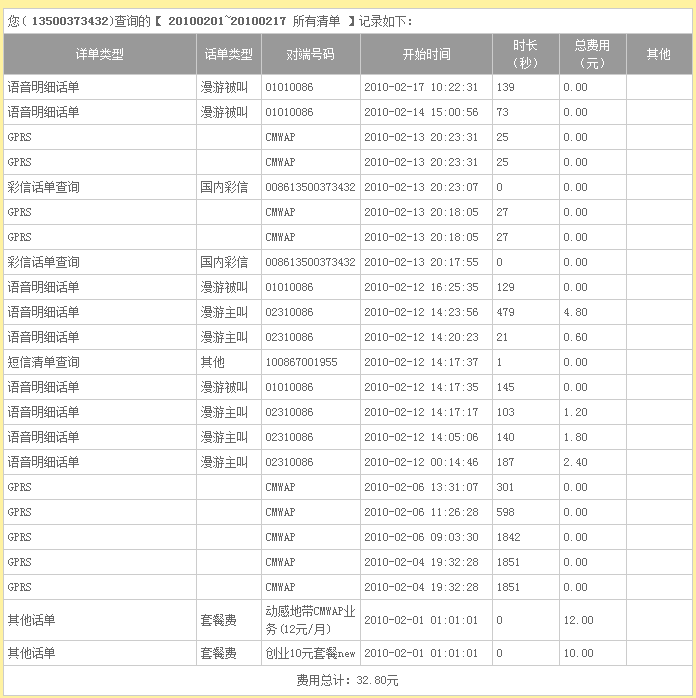老实说,第一次看见中文的新闻,我以为是蓝翔技校在炒作,于是跑到NYT网站上看了一下英文原文,你看国内这些人,转载的时候老是断章取义,转载前面一半,后面一半就不管了,而且总是把关键的部分省略掉。总的来说,NYT这篇新闻呢,猜测的成分居多,满篇都是不明人士,不明的Ukrainian professor,不明的leading professor,不明的Mr.Shao,把百度也栽赃了一把,即使百度本来就很符合中国国情,最后看到联合署名,这多半是国内的几个NYT线人乱编出来的新闻,世风日下。
如不明的leading professor所说,利用校园网发动对国外网站的攻击是常有的事情,校园网的国际出口太富余了,我也很惭愧的表达一下以前在学校也被来自俄罗斯的黑客们黑过很多次,被上传了个木马啊,文件管理器什么的,虽然是程序的溢出,不是服务器环境的问题,但是,把问题的产生全部推托给程序漏洞是不太合理的,服务器环境理应给出一个safe mode或者说jail mode,即使程序有漏洞也不能进行更多的违规操作,但通常这都是很理想化的状态,因为这样会导致应用系统整体运行效率的降低,鱼和熊掌不可兼得啊。
—http://www.nytimes.com/2010/02/19/techn … china.html—
Two Chinese Schools Said to Be Tied to Online Attacks
SAN FRANCISCO — A series of online attacks on Google and dozens of other American corporations have been traced to computers at two educational institutions in China, including one with close ties to the Chinese military, say people involved in the investigation.
James C. Mulvenon said the Chinese government often used volunteer “patriotic hackers” to support its policies.
They also said the attacks, aimed at stealing trade secrets and computer codes and capturing e-mail of Chinese human rights activists, may have begun as early as April, months earlier than previously believed. Google announced on Jan. 12 that it and other companies had been subjected to sophisticated attacks that probably came from China.
Computer security experts, including investigators from the National Security Agency, have been working since then to pinpoint the source of the attacks. Until recently, the trail had led only to servers in Taiwan.
If supported by further investigation, the findings raise as many questions as they answer, including the possibility that some of the attacks came from China but not necessarily from the Chinese government, or even from Chinese sources.
Tracing the attacks further back, to an elite Chinese university and a vocational school, is a breakthrough in a difficult task. Evidence acquired by a United States military contractor that faced the same attacks as Google has even led investigators to suspect a link to a specific computer science class, taught by a Ukrainian professor at the vocational school.
The revelations were shared by the contractor at a meeting of computer security specialists.
The Chinese schools involved are Shanghai Jiaotong University and the Lanxiang Vocational School, according to several people with knowledge of the investigation who asked for anonymity because they were not authorized to discuss the inquiry.
Jiaotong has one of China’s top computer science programs. Just a few weeks ago its students won an international computer programming competition organized by I.B.M. — the “Battle of the Brains” — beating out Stanford and other top-flight universities.
Lanxiang, in east China’s Shandong Province, is a huge vocational school that was established with military support and trains some computer scientists for the military. The school’s computer network is operated by a company with close ties to Baidu, the dominant search engine in China and a competitor of Google.
Within the computer security industry and the Obama administration, analysts differ over how to interpret the finding that the intrusions appear to come from schools instead of Chinese military installations or government agencies. Some analysts have privately circulated a document asserting that the vocational school is being used as camouflage for government operations. But other computer industry executives and former government officials said it was possible that the schools were cover for a “false flag” intelligence operation being run by a third country. Some have also speculated that the hacking could be a giant example of criminal industrial espionage, aimed at stealing intellectual property from American technology firms.
Independent researchers who monitor Chinese information warfare caution that the Chinese have adopted a highly distributed approach to online espionage, making it almost impossible to prove where an attack originated.
“We have to understand that they have a different model for computer network exploit operations,” said James C. Mulvenon, a Chinese military specialist and a director at the Center for Intelligence Research and Analysis in Washington. Rather than tightly compartmentalizing online espionage within agencies as the United States does, he said, the Chinese government often involves volunteer “patriotic hackers” to support its policies.
Spokesmen for the Chinese schools said they had not heard that American investigators had traced the Google attacks to their campuses.
If it is true, “We’ll alert related departments and start our own investigation,” said Liu Yuxiang, head of the propaganda department of the party committee at Jiaotong University in Shanghai.
But when asked about the possibility, a leading professor in Jiaotong’s School of Information Security Engineering said in a telephone interview: “I’m not surprised. Actually students hacking into foreign Web sites is quite normal.” The professor, who teaches Web security, asked not to be named for fear of reprisal.
“I believe there’s two kinds of situations,” the professor continued. “One is it’s a completely individual act of wrongdoing, done by one or two geek students in the school who are just keen on experimenting with their hacking skills learned from the school, since the sources in the school and network are so limited. Or it could be that one of the university’s I.P. addresses was hijacked by others, which frequently happens.”
At Lanxiang Vocational, officials said they had not heard about any possible link to the school and declined to say if a Ukrainian professor taught computer science there.
A man named Mr. Shao, who said he was dean of the computer science department at Lanxiang but refused to give his first name, said, “I think it’s impossible for our students to hack Google or other U.S. companies because they are just high school graduates and not at an advanced level. Also, because our school adopts close management, outsiders cannot easily come into our school.”
Mr. Shao acknowledged that every year four or five students from his computer science department were recruited into the military.
Google’s decision to step forward and challenge China over the intrusions has created a highly sensitive issue for the United States government. Shortly after the company went public with its accusations, Secretary of State Hillary Rodham Clinton challenged the Chinese in a speech on Internet censors, suggesting that the country’s efforts to control open access to the Internet were in effect an information-age Berlin Wall.
A report on Chinese online warfare prepared for the U.S.-China Economic Security Review Commission in October 2009 by Northrop Grumman identified six regions in China with military efforts to engage in such attacks. Jinan, site of the vocational school, was one of the regions.
Executives at Google have said little about the intrusions and would not comment for this article. But the company has contacted computer security specialists to confirm what has been reported by other targeted companies: access to the companies’ servers was gained by exploiting a previously unknown flaw in Microsoft’s Internet Explorer Web browser.
Forensic analysis is yielding new details of how the intruders took advantage of the flaw to gain access to internal corporate servers. They did this by using a clever technique — called man-in-the-mailbox — to exploit the natural trust shared by people who work together in organizations.
After taking over one computer, intruders insert into an e-mail conversation a message containing a digital attachment carrying malware that is highly likely to be opened by the second victim. The attached malware makes it possible for the intruders to take over the target computer.
John Markoff reported from San Francisco and David Barboza from Shanghai. Bao Beibei and Chen Xiaoduan in Shanghai contributed research.




